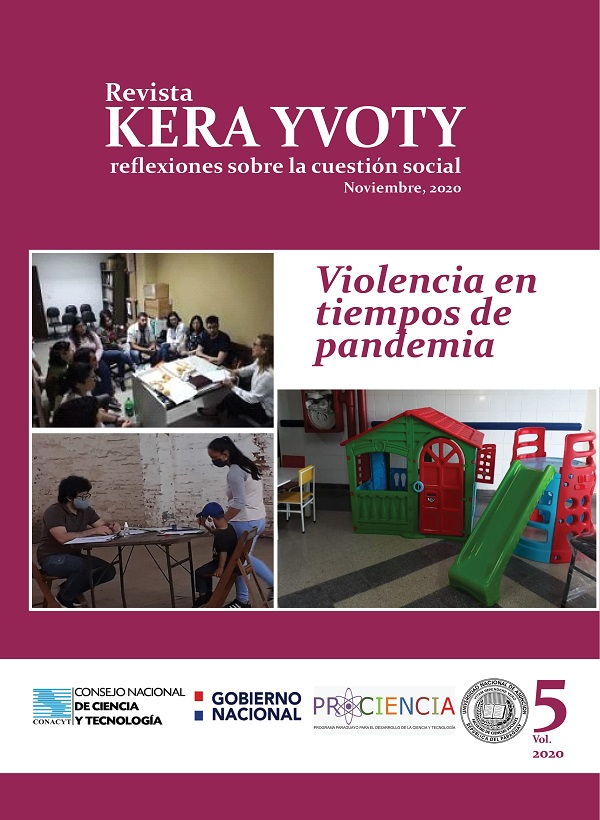Abstract
It is an exploratory study with a qualitative approach that allows us to understand the stories of women’s experiences, from a perspective with a gender and human rights perspective. A critical analysis was developed around dimensions such as: family structure and relationship, economic, educational, health conditions and finally the expressions of gender violence. Among the main findings, the study shows that the women interviewed come from nuclear families, during their childhood and adolescence all have witnessed gender violence since it was exercised by their fathers towards their mothers. They have been adolescent workers, they prioritized daily economic support and at this stage they abandoned or were deprived of academic training; they access public health services. They had as their first spouse the father of their sons and daughters, who over time in turn became their main aggressors. Women were within the circle of violence for more than ten (10) years, during all this time their sons and daughters were witnesses of such a reality. La Casa de la Mujer, community service, has been key in the cultural transformation of these women at the time of breaking the cycle of violence and denounced such situation, they were psychologically and legally accompanied, feeling as subjects of law and recognizing the possibility of a free life of violence.
References
Arrom, C., Fresco, M. P., Samudio, M., Arrom, C. M., Arce, A., Arrom, M. A. (2015). Síndrome depresivo en la adolescencia asociado a género, abuso sexual, violencia física y violencia. Mem. Inst. Investig. Cienc. Salud., 13(3), 45-50.
Dirección General de Estadísticas, Encuestas y Censo (DGEEC). (2012). Asunción Bañado Sur. Principales indicadores de población y vivienda 2012
Dirección General de Estadísticas, Encuestas y Censo (DGEEC). (2016). Mujeres Jefas de Hogar. Periodo 2002-2012
Dobrée, P. (2018). ¿Cómo se las arreglan para sostener la vida? Prácticas, experiencias y significados del cuidado entre mujeres pobres que viven en el Bañado Sur de Asunción. Paraguay.
Dobrée, P. (Marzo de 2020). Cuidados ejercidos por las mujeres en el contexto covid. Asunción, Paraguay.
Jelin, E. (2005). Las familias latinoamericanas en el marco de las transformaciones globales. Hacia una nueva agenda de políticas públicas. dds.cepal.org/eventos/presentaciones/2005/0628/Elizabeth_Jelin.pdf
Ministerio de la Mujer (2020). Paraguay protege de la violencia a mujeres, niñas, niños y adolescentes. Recuperado de:
Ministerio de Mujer (2019). ¡Emergencia¡ Basta de Feminicidios. http://www.mujer.gov.py/index.php/campanas/violencia-cero
ONU Mujeres (2016). Violencia contra las Mujeres en Paraguay: avances y desafíos. AGR S.A Servicios Gráficos.
UNICEF. (2012). Observatorio de los Derechos de la Infancia y la Adolescencia en Uruguay 2012. http://www2.compromisoeducativo.edu.uy/sitio/wp-content/uploads/2014/05/Observatorio_infancia_2012.pdf

This work is licensed under a Creative Commons Attribution 4.0 International License.
Copyright (c) 2021 Analía Roxana Carosini Miranda, Lilian Paola Morales Ruiz




